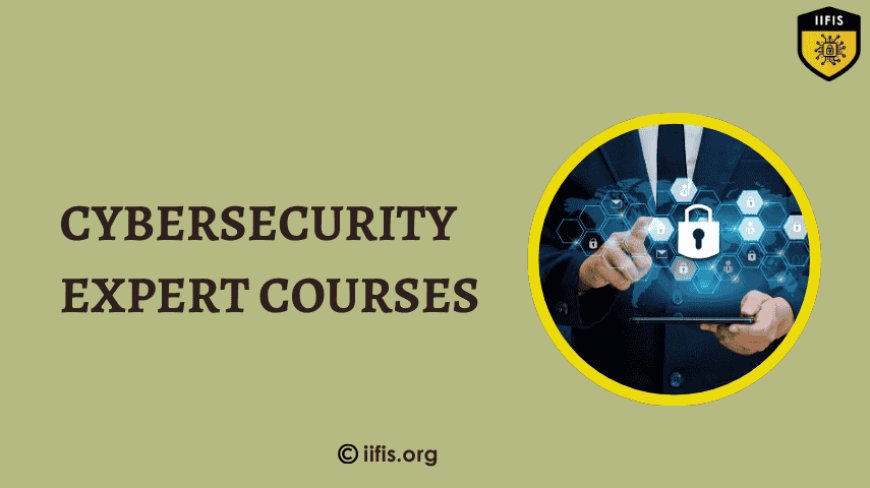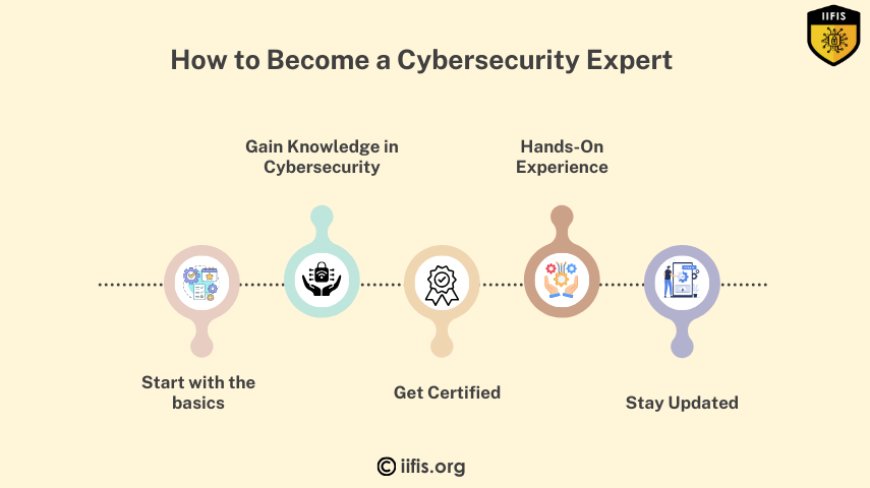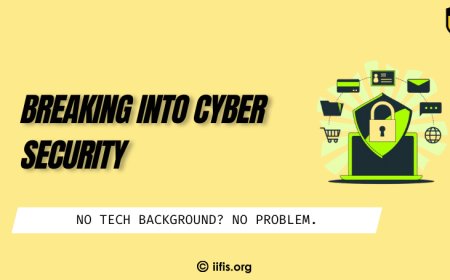Cybersecurity Expert Courses to Advance Your Skills
Improve your skills with expert courses in cybersecurity. Learn key areas like threat detection, risk management, and network security to grow in this in-demand field.

As someone in the cybersecurity field, I’ve seen how important it is to continuously improve and stay updated with the latest trends. The world of cybersecurity is always changing, and taking specialized courses has been a great way to keep my skills sharp. Courses in areas like ethical hacking, network security, and incident response give you both the practical experience and certifications needed to succeed. These courses help you stay current with new threats and provide the tools to handle real-world challenges, ultimately boosting your career in this fast-growing field.
What is a cybersecurity expert?
A cybersecurity expert is a professional who specializes in protecting systems, networks, and data from digital attacks, unauthorized access, and cybercrimes. Their primary role is to safeguard an organization’s sensitive data and information systems against potential threats, such as hacking, malware, ransomware, and other forms of cyberattacks. Cybersecurity experts use various technologies, tools, and strategies to detect vulnerabilities, respond to threats, and ensure the ongoing security of digital infrastructure.
Why Cybersecurity is a Must-Have Skill
With the increasing reliance on technology, the threat of cyberattacks continues to grow. Individuals, businesses, and governments are all vulnerable to malicious activities that can cause significant financial, operational, and reputational damage. Cybersecurity skills are essential for preventing these attacks, detecting security breaches, and ensuring the protection of sensitive information.
Here are a few reasons why cybersecurity is a critical skill:
-
Rising Cybercrime: Cybercriminals are becoming more sophisticated, making the need for cybersecurity professionals more urgent.
-
Data Protection: Data breaches can cost organizations millions of dollars. Cybersecurity experts help secure personal and business information.
-
Compliance: Various industries must comply with data protection regulations (e.g., GDPR, HIPAA). Cybersecurity experts ensure adherence to these standards.
-
Job Opportunities: With increasing threats, cybersecurity skills are in high demand, creating abundant career opportunities in the field.
Types of Cybersecurity Courses
Cybersecurity courses are available at different levels, catering to diverse skill sets and career aspirations. Here are the most common types:
Beginner-Level Courses
-
Introduction to Cybersecurity
-
Cybersecurity Fundamentals
-
Basic Network Security
These courses are designed for newcomers, covering basic concepts, terminology, and the fundamentals of cybersecurity.
Intermediate-Level Courses
-
Network Security
-
Cyber Threat Intelligence
-
Firewalls and Intrusion Detection Systems (IDS)
Ideal for individuals with a basic understanding of IT or networking, these courses delve deeper into cybersecurity concepts.
Advanced Courses
-
Ethical Hacking and Penetration Testing
-
Malware Analysis
-
Cyber Forensics
These courses target individuals with substantial experience in the field and focus on specialized areas of cybersecurity.
Certifications
-
Certified Ethical Hacker (CEH)
-
Certified Information Systems Security Professional (CISSP)
-
CompTIA Security+
These globally recognized certifications validate your expertise and enhance your career prospects.
Cybersecurity Expert Courses to Advance Your Skills
To become a cybersecurity expert, continuous learning is essential. Here are some key courses to boost your skills:
-
Certified Ethical Hacker (CEH): Learn ethical hacking and penetration testing.
-
CISSP: Ideal for senior-level professionals, covering a broad range of security topics.
-
CompTIA Security+: A beginner-friendly course to cover basics like network security.
-
CISM focuses on security management and risk management.
-
CyberOps: Specialize in security operations and incident response.
-
CCSP: Focus on cloud security, an in-demand skill.
-
Malware Analysis: Learn to analyze and reverse malicious software.
-
Penetration Testing: Specialize in network security and vulnerability assessment.
How to Choose the Right Course
When selecting a cybersecurity course, consider the following factors:
-
Your Skill Level: Opt for beginner courses if you’re new to the field. For those with experience, choose intermediate or advanced courses.
-
Career Goals: If you aim to specialize in areas like ethical hacking or network security, select courses aligned with those goals.
-
Accreditation: Ensure the course or certification is recognized by industry leaders and reputable institutions.
-
Hands-On Practice: Look for courses offering practical labs and real-world simulations to build hands-on experience.
-
Duration and Flexibility: Consider time constraints. Online courses offer flexibility, while in-person programs may provide structured learning environments.
How to Become a Cybersecurity Expert
Follow these steps to become a cybersecurity expert:
-
Start with the basics: Learn fundamental concepts of networking, operating systems, and security principles.
-
Gain Knowledge in Cybersecurity: Enroll in online courses, attend workshops, or pursue a degree in cybersecurity.
-
Get Certified: Obtain certifications like CEH, CISSP, or CompTIA Security+ to validate your skills.
-
Hands-On Experience: Engage in practical training through labs, internships, or real-world projects.
-
Specialize in an Area: Focus on a particular aspect of cybersecurity, such as ethical hacking, malware analysis, or network security.
-
Stay Updated: Cybersecurity is constantly evolving, so staying current with the latest trends, tools, and threats is crucial.

Additional Requirements for Becoming an Expert
In addition to formal education and certifications, the following skills are vital:
-
Critical Thinking and Problem-Solving: Ability to assess risks, identify vulnerabilities, and implement solutions.
-
Attention to Detail: Precision in identifying and addressing security threats.
-
Communication Skills: Capability to communicate security risks, solutions, and processes effectively to non-technical stakeholders.
-
Continuous Learning: A commitment to staying informed about emerging cybersecurity trends and technologies.
Roles and Responsibilities of a Cybersecurity Expert
A cybersecurity expert plays a crucial role in protecting digital infrastructures from malicious threats. Their key responsibilities include:
-
Threat Detection and Prevention: Monitoring systems and networks for unusual activities and mitigating cyberattacks.
-
Incident Response: Responding to security breaches, analyzing their impact, and implementing recovery strategies.
-
Vulnerability Assessment: Conducting regular vulnerability assessments and penetration testing to identify system weaknesses.
-
Security Architecture: Designing and implementing robust security measures to safeguard sensitive data and infrastructure.
-
Risk Management: Evaluating potential risks and ensuring compliance with security regulations.
-
Training and Awareness: Educating employees about cybersecurity best practices and potential threats.
Salaries of Cybersecurity Experts
Salaries for cybersecurity experts vary based on experience, location, and specialization. On average:
-
Entry-Level: Professionals with less than two years of experience can expect salaries between₹4,00,000 and₹7,00,000 per year in India.
-
Mid-Level: Those with 3-5 years of experience can earn₹7,00,000 to₹12,00,000 annually.
-
Senior-Level: Experienced professionals with over five years in the field can command salaries ranging from ₹12,00,000 to ₹25,00,000 or more annually.
Globally, cybersecurity experts in countries like the U.S. and the U.K. earn between $70,000 and $150,000 per year, depending on experience and role.
Key Certifications to Consider
Becoming a cybersecurity expert is an exciting and rewarding journey with immense career potential. As cyber threats continue to rise, the demand for skilled professionals is greater than ever. By gaining the necessary knowledge, obtaining certifications, and staying updated with industry advancements, you can position yourself for success in this dynamic field. Whether you're starting with foundational courses or specializing in areas like ethical hacking or network security, the opportunities in cybersecurity are vast. With dedication and continuous learning, you can build a fulfilling career
























